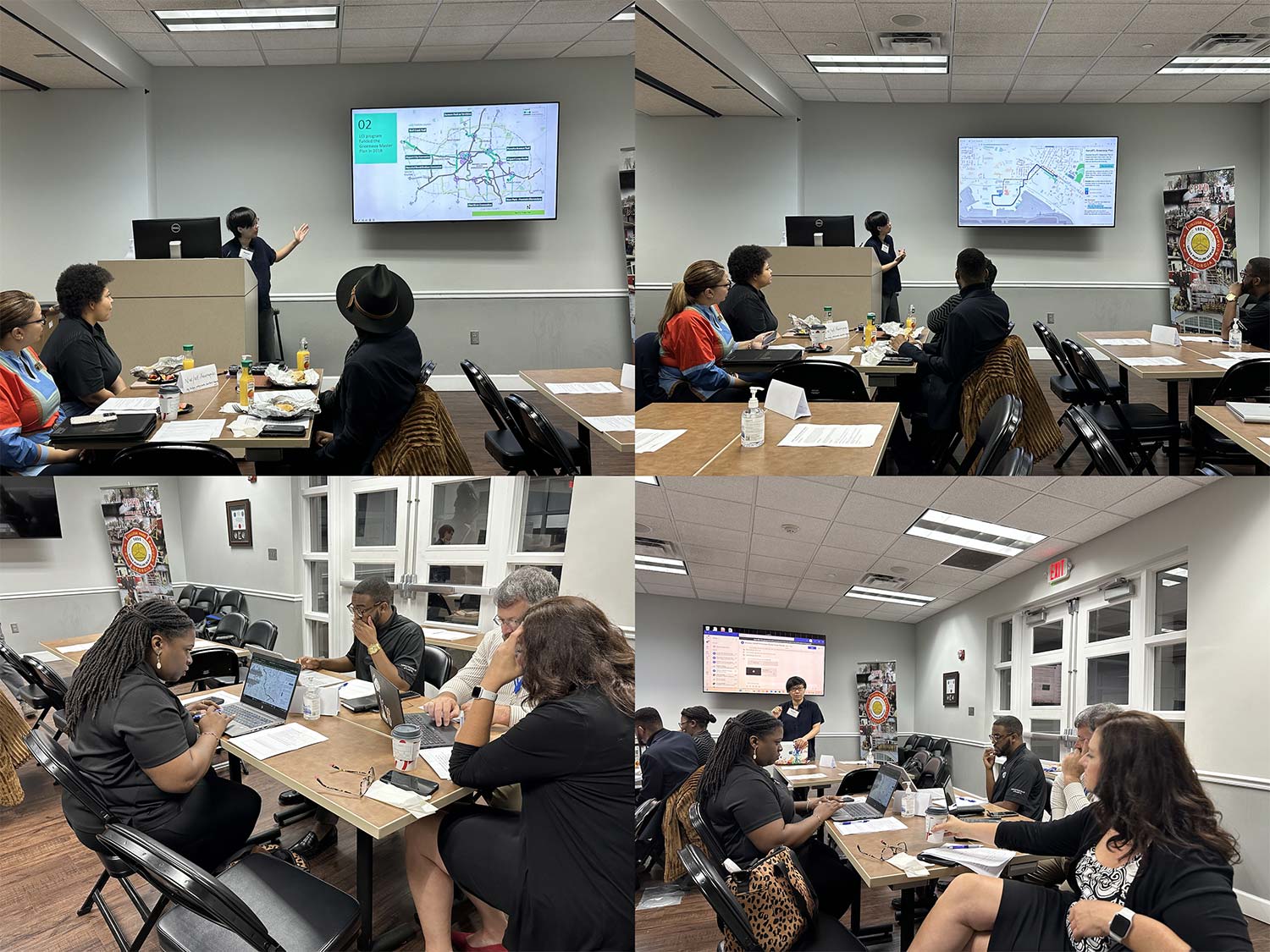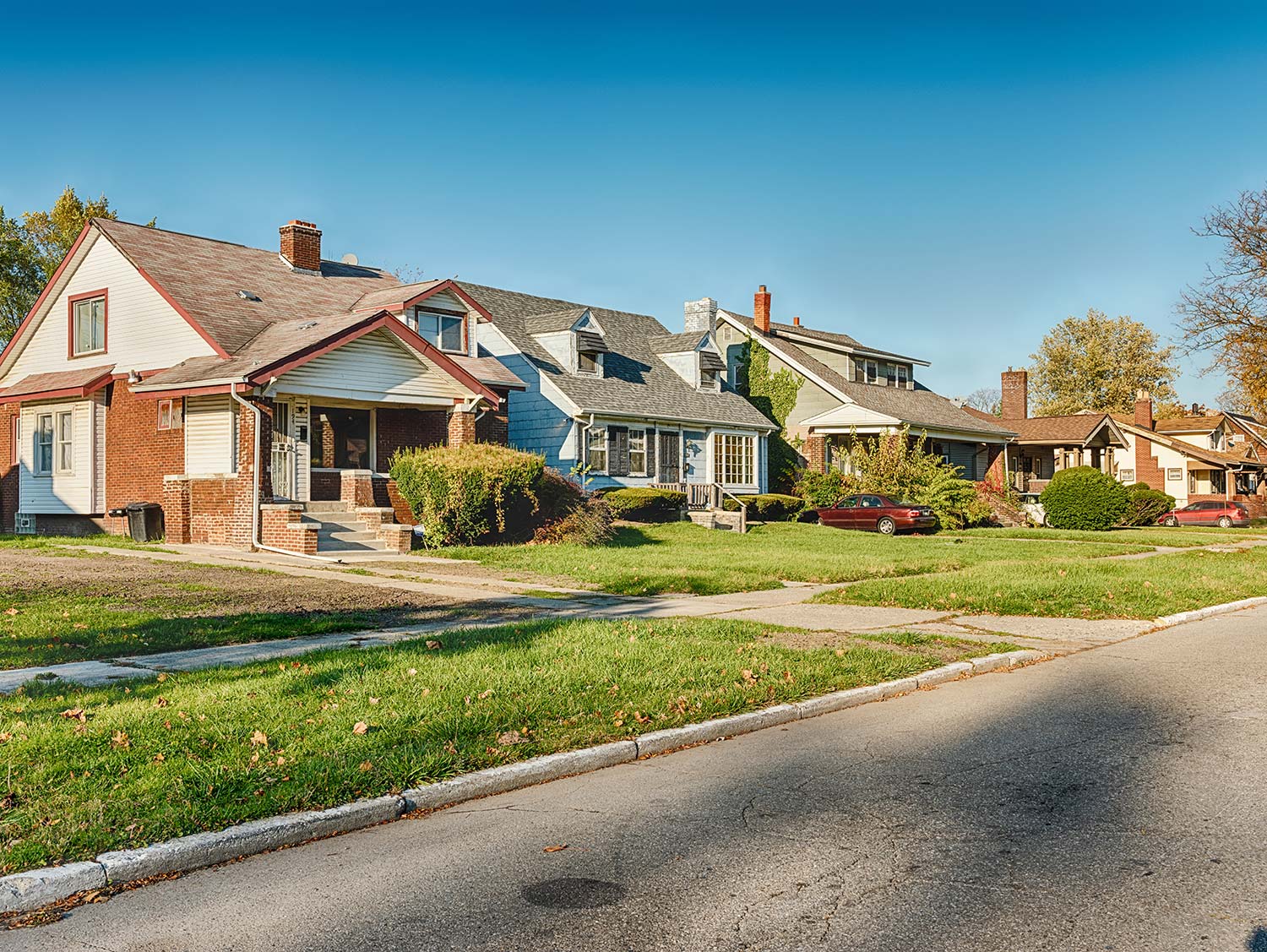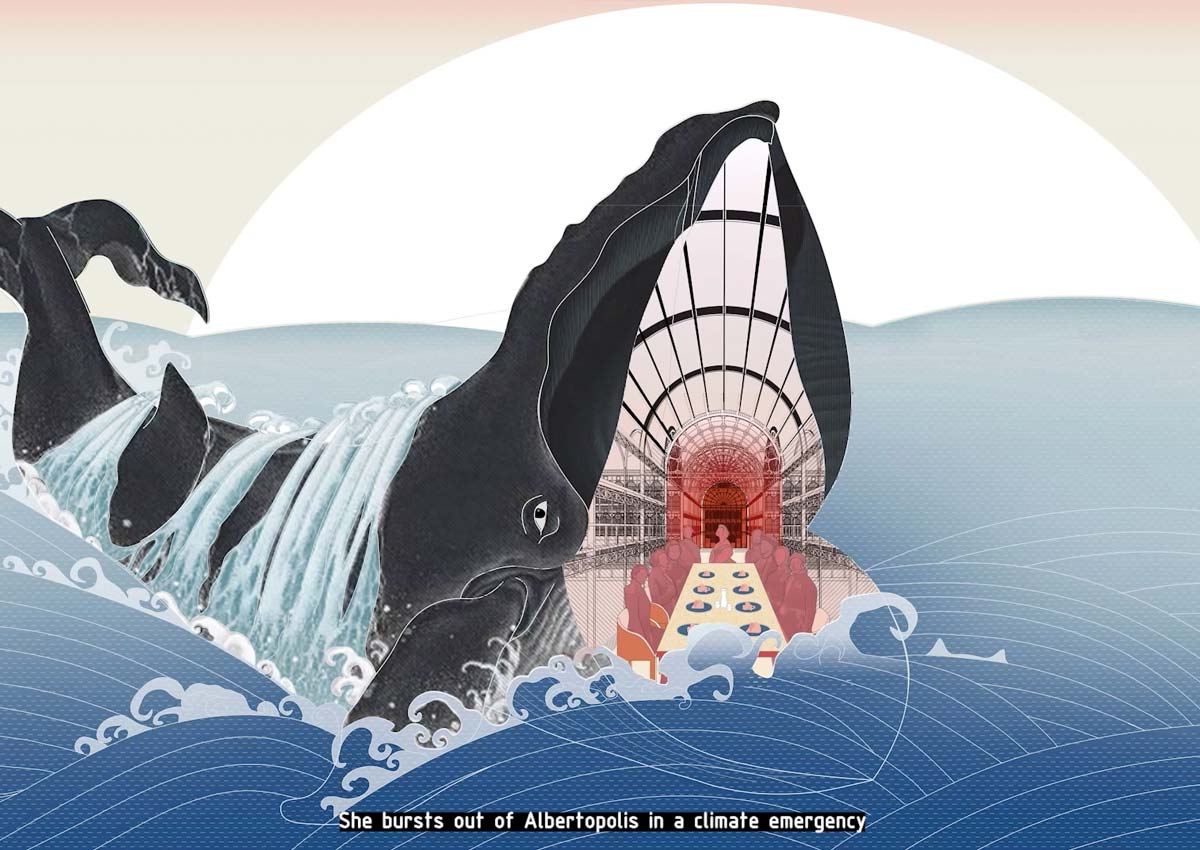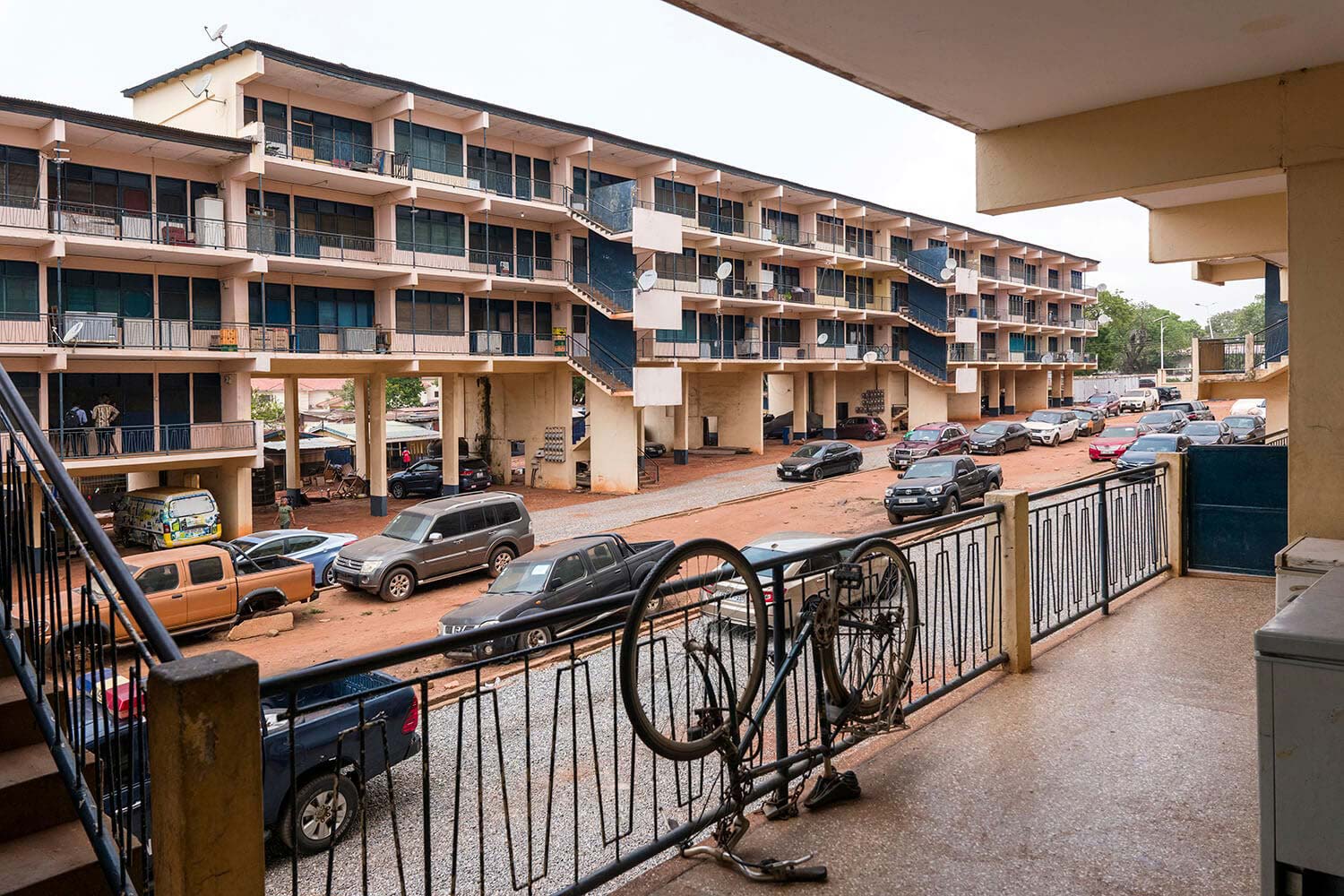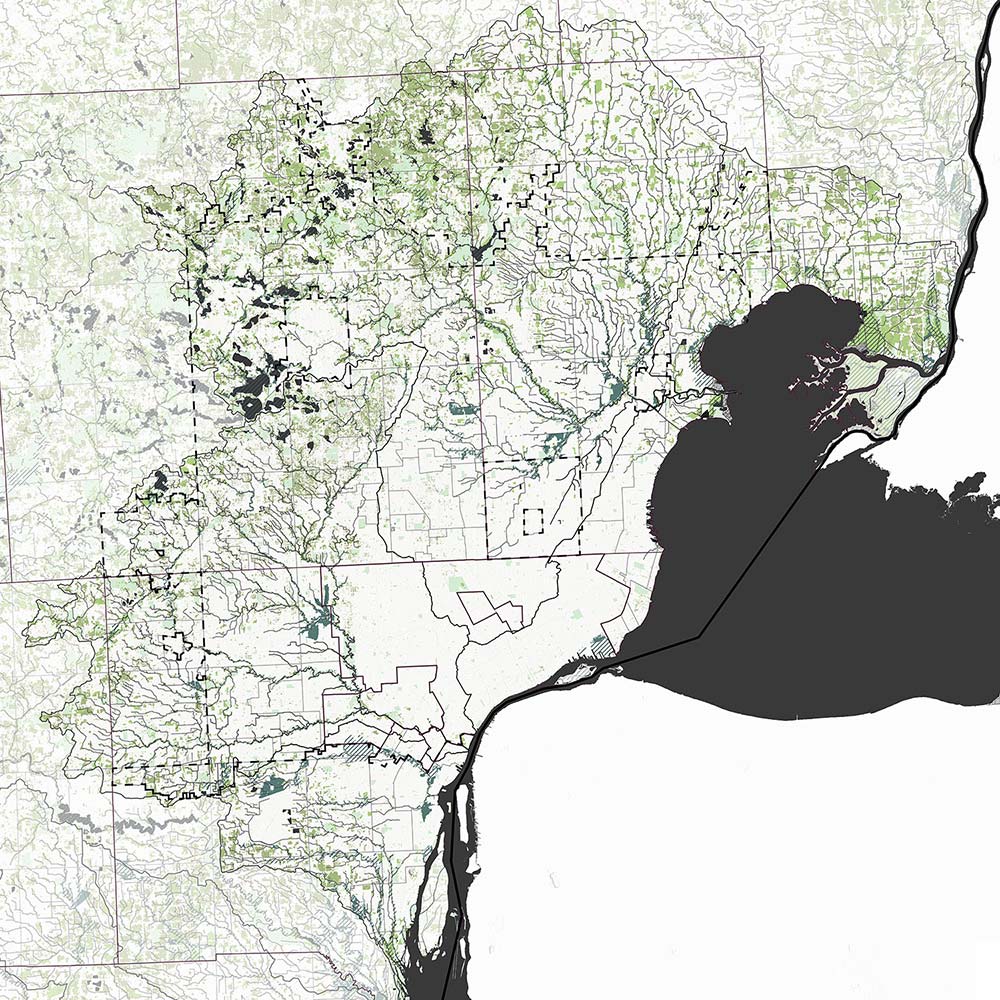
Taubman College faculty collaborate on plan to mitigate flooding, enhance biodiversity in Southeast Michigan
In an interdisciplinary project supported by the National Fish and Wildlife Foundation Coastal Resilience Fund, several Taubman College faculty members will help develop a strategic plan for nature-based solutions to mitigate flooding and enhance biodiversity in Southeast Michigan.
Kathy Velikov, professor of architecture, is co-principal investigator (PI) for the Taubman College-led component of the awarded “Integrating Nature Based Solutions into a Comprehensive Stormwater Strategy for SE Michigan” grant, with team members María Arquero de Alarcón, associate professor of architecture and urban planning, and Geoffrey Thün, professor of architecture.
The planning grant aims to develop a regional vision for climate adaptation strategies that leverage open-space systems to integrate large-scale nature-based solutions (such as wetlands or restoration of historic stream channels) with grey infrastructure systems (such as pipes and drains). The planning process will devise a transferable and scalable model with multiple social and ecological benefits, such as flood resilience, biodiversity protection, habitat creation, recreation, and public health.
By working across Southeast Michigan municipalities, the project seeks to articulate a broad network of actors and build regional capacity for design and implementation at scale. Project activities include engaged working sessions with stakeholders representing all levels of regional government, NGOs, and community leaders. The commitment to environmental justice principles aims to redress historical inequities in infrastructure development and maintenance.
The Taubman team will lead the collaborative visioning process, incorporating the development of visualization tools, co-design frameworks, scenario designs for regional plan development and decision-making.
“Stormwater flooding is a major threat to communities of Southeast Michigan due to increased frequency of extreme storms that exceed the capacity of current infrastructures,” Velikov said. “This project will complement municipal and neighborhood level stormwater resiliency efforts to develop a regional watershed-based vision and adaptive planning framework that operates across multiple systems, jurisdictions, and constituencies.”
The project is co-led by an interdisciplinary team of researchers from the University of Michigan, Wayne State University’s Healthy Urban Waters Program, Michigan State University, and the environmental engineering firm LimnoTech Inc. Glen Daigger, U-M professor of civil and environmental engineering, is the project PI. Curt Wolf, managing director of U-M’s Urban Collaboratory, serves as project manager. Peter Adraiens, U-M professor of civil and environmental engineering, will lead research on financial analysis. Wayne State and Michigan State teams contribute expertise in community engagement, water resources engineering, and fish and wildlife habitat. LimnoTech brings technical expertise in environmental and water resources engineering, hydrology, and river, lake, and estuary remediation and restoration. The planning grant and its series of stakeholder-engaged working meetings will run through 2025.





